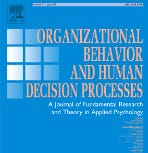New article in OBHDP (October 23rd, 2024)
The confrontation effect: When users engage more with ideology-inconsistent content online
Daniel Mochon, Janet Schwartz
https://www.sciencedirect.com/science/article/pii/S074959782400058X
If you watch the news or read online commentary, you are likely to come across information that is inconsistent with your beliefs. The likelihood of this occurring is especially high around an election, when the “airwaves” are filled with highly charged topics (e.g., immigration, gun control, economy). Encountering information that challenges your beliefs can lead to unpleasant negative emotions (e.g., anger, anxiety, disgust). Accordingly, people typically exhibit a “congeniality bias,” wherein they avoid ideology-inconsistent information that might invoke a negative emotional response. The congeniality bias helps explain why people with liberal beliefs might seek out content with a liberal slant/focus, whereas people with conservative beliefs might seek out content with a conservative slant/focus. However, a glance at social media posts on highly charged topics challenges this traditional notion of congeniality bias. In online settings, it is increasingly common to see users with ideology-inconsistent views dominate or even consume threads. In this paper, the authors identify a phenomenon they call the “confrontation effect”—a tendency to engage more with ideology-inconsistent information than ideology-consistent information. They argue that the confrontation effect is driven by a sense of outrage—an other-condemning emotion consisting of anger and disgust. The authors propose that outrage “compels” users to stand up and fight back against direct challenges to their ideological views. Across six studies, the authors demonstrate that information inconsistent with people’s beliefs led to a sense of outrage that increased engagement with the topic. They found that outrage (and subsequently engagement) was heightened when the inconsistent information was framed as more threatening and/or the topic was seen as important. Taken together, this work helps explain why people might gravitate toward information that is inconsistent with their beliefs and, therefore, emotionally unpleasant.
P.S. if you can’t access the full-text let us (m-kouchaki@kellogg.northwestern.edu or mikebaer@asu.edu) know and we’d be happy to share a copy.


